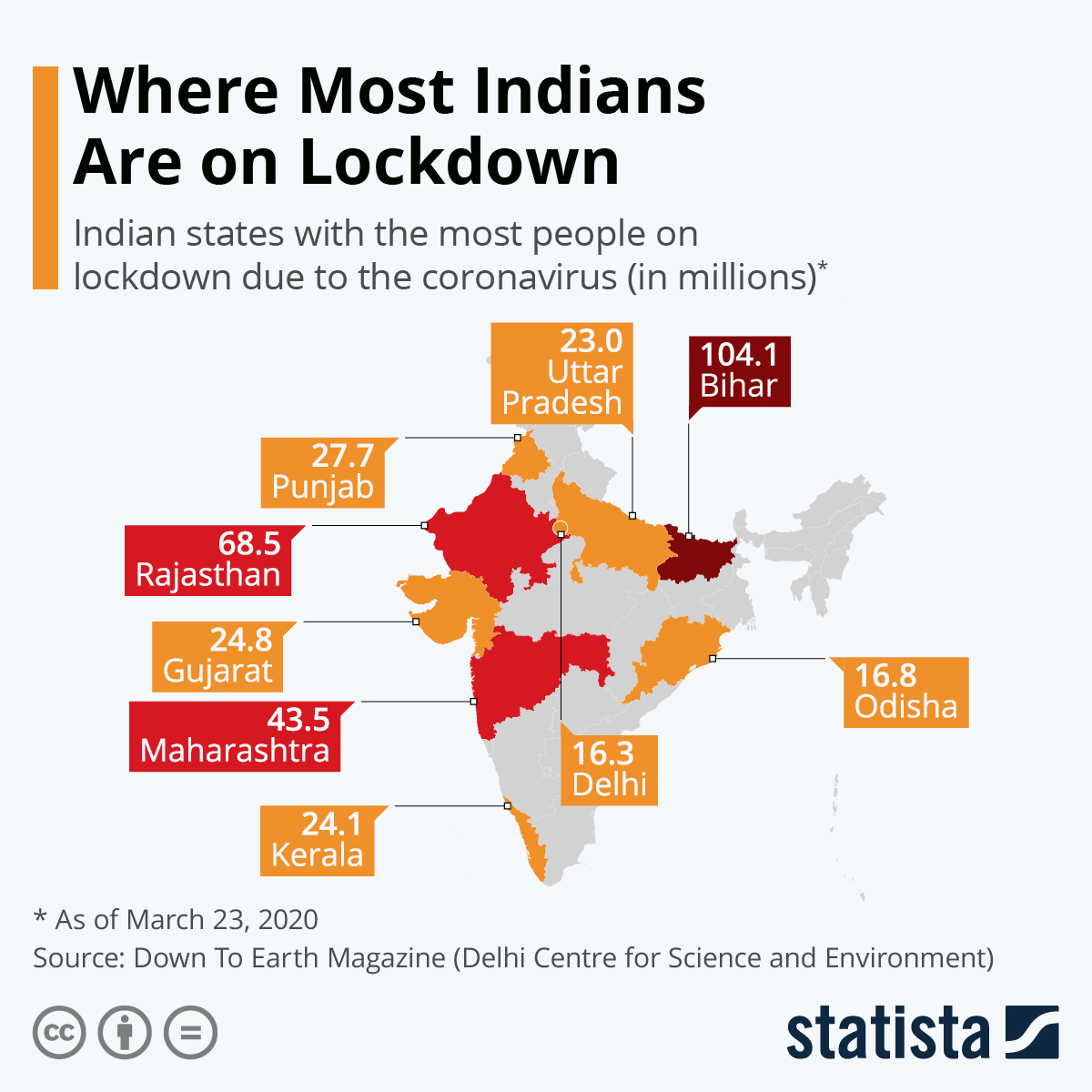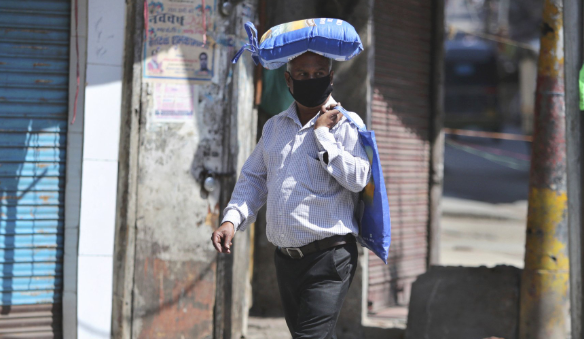After an all-day curfew was observed by the entire nation Sunday, millions of Indians are remaining on lockdown because of the global coronavirus pandemic.
You will find more infographics at Statista
And now, as if the coronavirus containment scenes from around the world weren’t dystopian enough, the disturbing imagery continues in India, where those suspected of having the coronavirus are now being given hand stamps, according to Reuters.
The same people are also being tracked using their mobile phones and personal data in order for the government to help enforce quarantines. The tracking effort raises obvious questions about both privacy and mass surveillance.
More than 200 people have been infected with coronavirus in India, and there had been four official deaths as of yesterday. But officials continue to report cases of people fleeing quarantine.
This prompted the government to institute hand stamping, using indelible ink. The stamps are being used on people arriving at airports in the western state of Maharashtra and southern Karnataka state. The stamps show the date a person must remain under home quarantine and say “proud to protect” on them.
Supreme Court lawyer N S Nappinai said: “When I first heard of the stamping in Mumbai, I thought it was fake news. I understand the concern but where does one draw the line? Should fundamental rights be suspended in an emergency like this?”
The Indian government is also using citizen and reservation data from airlines to track people.
Archana Valzade, under secretary in Maharashtra’s health department said: “We found people who were stamped and were traveling. They had signed a self-declaration that they will not travel because they could be carriers of coronavirus. It is their duty as well to stop the infection. Stamping is essential and very useful to reduce the spread.”
Amar Fettle, who is heading the coronavirus control team in Kerala said: “People have been jumping quarantine and it has been a challenge to track them. But we have formed hundreds of squads, including policemen to track and ensure people follow the norms.”
Hospital physician Armida Fernandez concluded: “As a doctor who has worked in the public health service and in the community, I find people are not realizing the seriousness of the pandemic. Knowing the situation of public health in India and that we are dealing with 1.3 billion people … I am for the steps the government is taking.”


